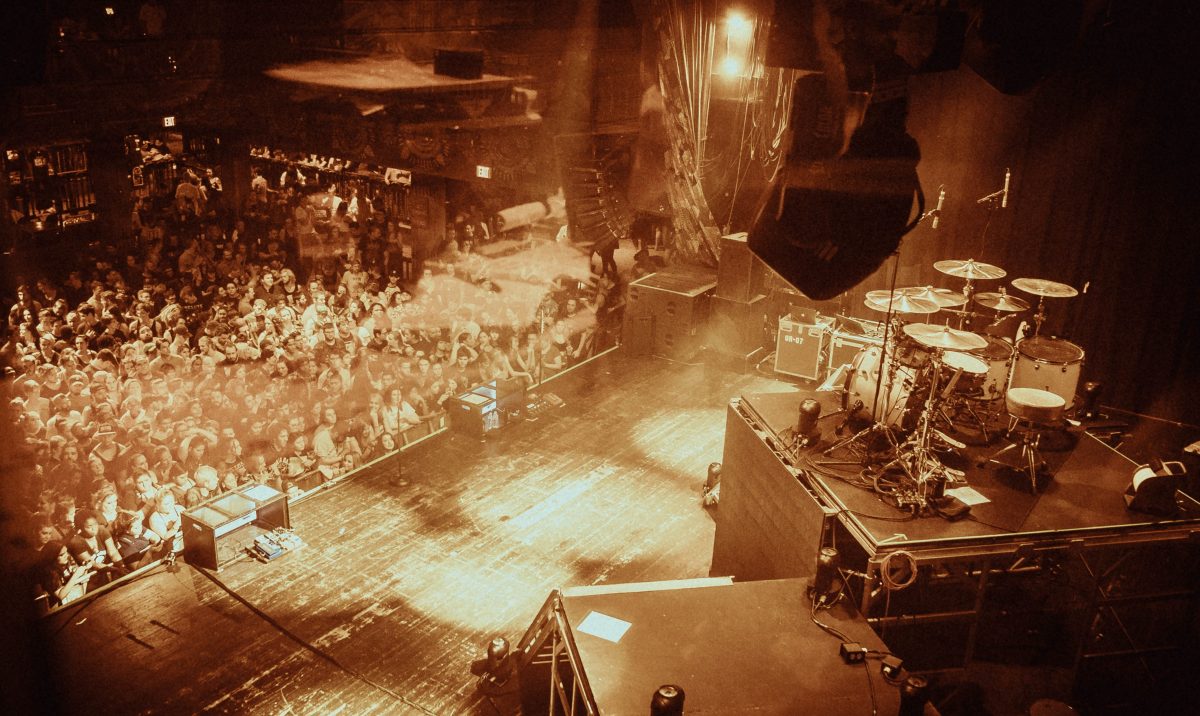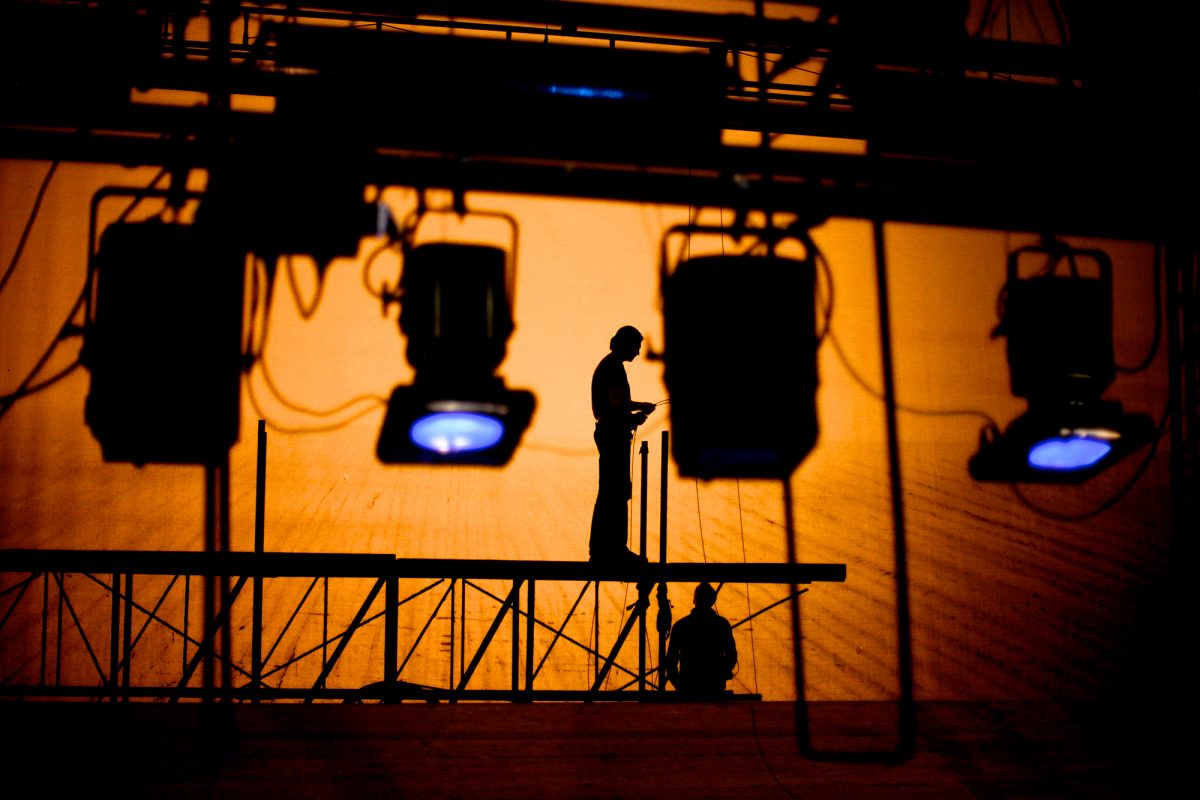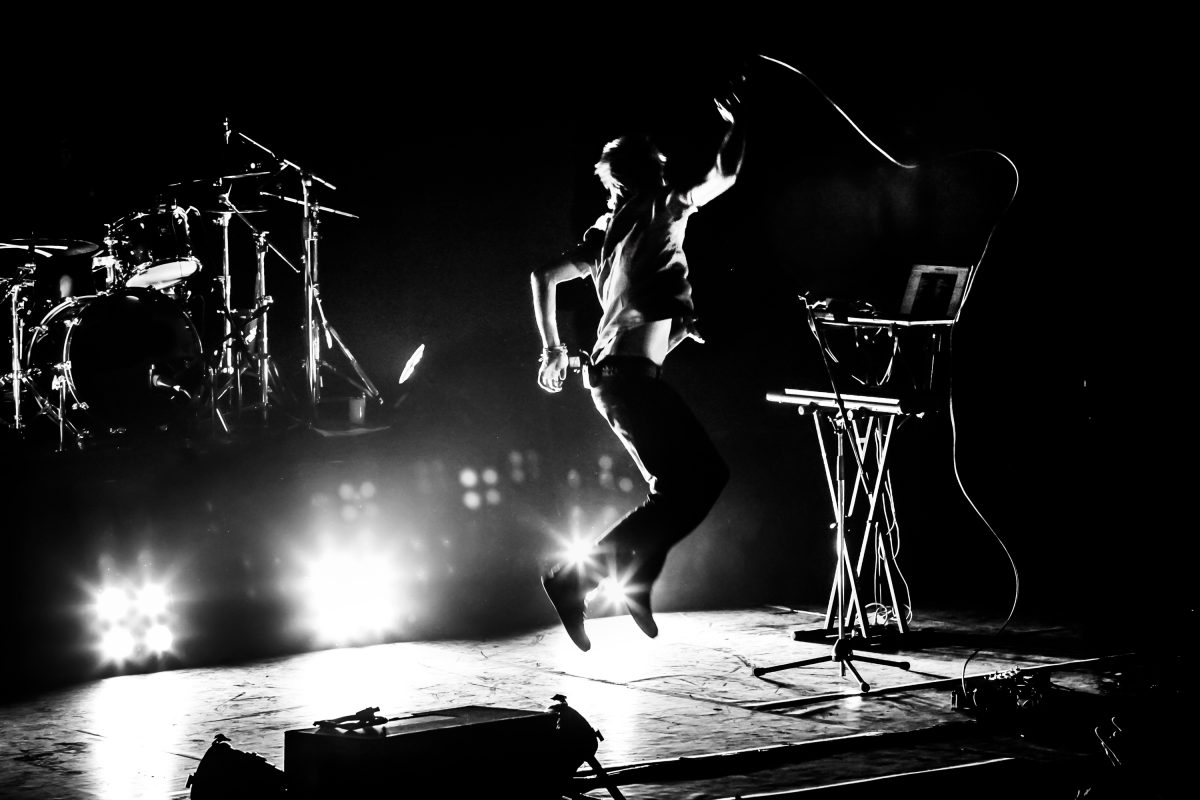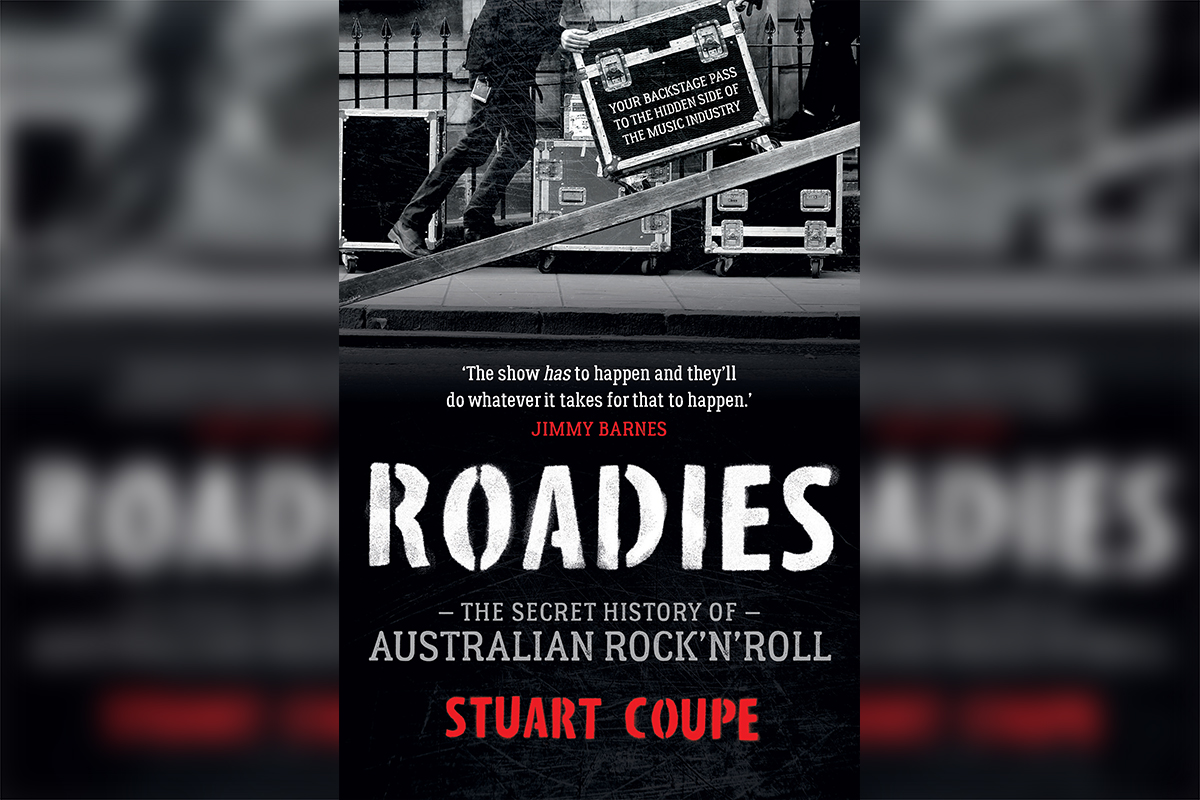“The show has to happen and they’ll do whatever it takes for that to happen.”
Jimmy Barnes
There’s something about Jimmy Barnes’ quote on the front cover that makes this book so intriguing. It encapsulates all your expectations of what Roadies will be: dealing with ego-driven artists, driving on the open road, taking all sorts of crazy drugs, the parties, the sex, the scandals, the life. At least that’s what I thought when I first read the quote. It was only when I reached the halfway mark that I saw the quote in a whole new way. They really do “whatever it takes” to make the show happen, and that’s the bittersweet truth.

Crowd awaiting concert. Image: Frankie Cordoba
Roadies does four things: It presents itself as a post-funeral reception remembering all the roadies lost throughout the past half-century; it reminisces on the very lifestyle of a roadie – the drugs that flowed, the various forms of stress, the relationships, the transience of touring and the necessary humour to deal with it all; it acts as a beacon for those who are trying to live their life as an ex-roadie; and it does it all with a candid and blunt attitude that has become the stereotype of the typical roadie.
Only Stuart Coupe can write something like this; with his knowledge, connections and experience of the music industry, he knows what questions to ask and how to bring them out in a no-bullshit way. Stuart is the author of previous titles such as The New Music (1980), The New Rock’n’Roll (1983), The Promoters (2003) and Gudinski (2015). He is also a journalist, music commentator, independent artist, publicist and radio broadcaster with a lifetime of experience in the world of music. In short, Stuart is the best man for this job.
Actually, to really drive that last point home, Stuart is the only Australian to interview Bob Dylan twice, and he estimates that he’s published at least six million words throughout his writing career – mostly on music. And as well as talking about musicians and bands, he’s also managed them. From the likes of Hoodoo Gurus, Paul Kelly, X, Perry Keyes, LJ Hill, Starky and The Devoted Few. So yeah, he’s well in the know about the music industry, and that helped inspire him to write about the people who make it all happen: the road crew.

Lighting guy on scaffolding. Image: Anna Jurkovska
Roadies come in all shapes and sizes, with all sorts of technical knowledge about creating the best shows. You have roadies who set up the lights, roadies who set up the sound, roadies who build the stage, roadies who set up the fencing, roadies who pander to the artist’s every need, roadies who source the best drugs, roadies who score the best chicks, and roadies who truck it all around. The best roadies are the ones who know a little of everything, and they formed a majority of road crew during the early years. Nowadays, thanks to the inevitable legislation around permits, licensing, and OH&S, roadies have to be a little more solidified in their technical aspirations. And they can’t take drugs while doing their job.
But whether you were a roadie in the last half of the 20th century or a roadie in the 21st century, you’d still have the best view in the house. The audience sees a facade, a highly choreographed show featuring chest thumping sound, spectacular lighting, and hundreds or thousands of like-minded individuals praising those on the stage. The roadie, on the other hand, sees the real side of singers: their crazy ego or their down-to-earth attitude, their good sides and bad, their quirks, the way they respect or (to their peril) disrespect the fellow crew, and especially their addictions to substance abuse.
The road crew are their saviours, working together as one supercomputer with one goal in mind: Making the show happen, rain, hail or shine. Even if that involves lacing an artist’s drink with speed to get them in the right mood for their curtain call in 20 minutes time. Or perhaps satisfying their every wish, some which sound normal like having five hot towels and three cans of Fanta ready backstage before the show, or the outlandish requests like making sure the backstage area is constantly kept at 25 degrees Celsius, with a Vicks steam inhaler, professional quality steamer, and professional iron and ironing board ready onsite for their arrival. In one odd case mentioned in the book, singer Barbra Streisand is rumoured to have requested her backstage area look and feel exactly (EXACTLY) like her own lounge room.

Singer jumping onstage. Image: Gallks
The only downside to having a career on the road, especially before the days of licensing, permits and OH&S, is that it all catches up with you in the end, and this is what makes Roadies bittersweet. Living a career on the road means you never really can “settle down”, as they call it. And when they do, often at retirement age, they lose all the friends within the industry. They move into a flat, with their main hobby now sitting in the back of their mind, and having nothing in the immediate future to keep them motivated. It’s troubling. Roadies who have spent nearly their whole adult life on the road can find it difficult to properly quit the industry in a healthy way, which is why they have a suicide rate that is double the national average. This troubling statistic has prompted the creation of the charity organisation, Support Act, which provides help and support for current and former roadies dealing with the many symptoms that can arise from being on the road.
It’s also what makes the Roadies book more special. Older Australians who’ve lived through the early years of rock’n’roll can use this as a window into their past, remembering all the festivals and concerts and pub bands they’ve seen. They can reminisce about the growth of their favourite artists and bands: Bands like The Rolling Stones, AC/DC, Bob Marley, Courtney Love, Sherbet, Ted Mulry Gang, INXS, Blondie and even Stevie Wonder. Oh, and let’s not forget the free love and the flowing drugs.
For younger Australians, it’s a historical tour of their favourite hobby: Festivals and concerts. It answers all the questions that chur through their head. What really makes a live show so good? What really goes on backstage? What drama have they dealt with? Are those speakers dangling from a chain above the stage really safe? Are the roadies really sleeping with their girlfriends? (The answer to that last question is probably yes). It will also give them a glimpse of what it takes to work in the industry, and what they should prepare for before they make that first jump.

Concert. Image: DisobeyArt
But the crux of the matter – after all the crazy anecdotes, the shocking gossip about ego-driven artists and bands, and the crude humour that binds all the stories together – is Jimmy Barnes’ bittersweet truth: roadies have done and will always do “whatever it takes” to get the show on the road.
And that’s what everyone should know.
If you are a roadie or ex-roadie in need of assistance, call Support Act on 1300 731 303. Also, check out their Facebook page to keep up-to-date and network with fellow road crew.


